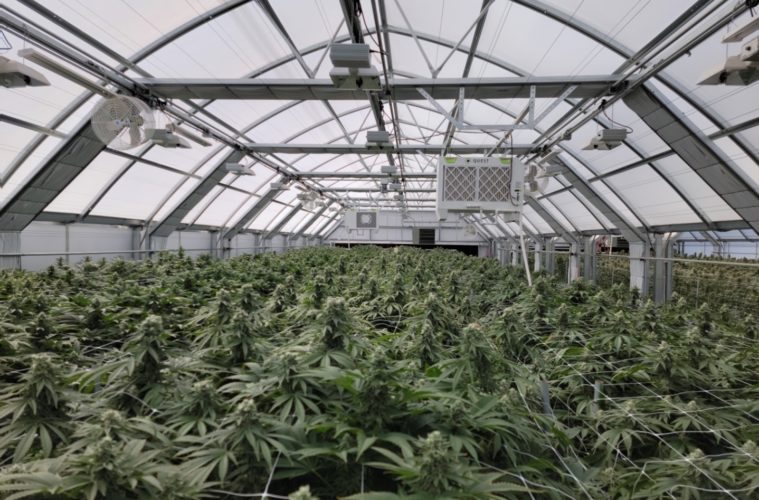We sat down with the National Cannabis Industry Association to talk about the Cannabis Administration and Opportunity Act proposed by Senate Democrats.
The bill would decriminalize and deschedule cannabis but still has a bit of mystery around it. It’s unclear what the business side of things will look like when the comment period ends at the beginning of September.
“We’re a little short on details,” Morgan Fox, NCIA Media Relations Director, told L.A. Weekly. “We’re still as an organization going through all the little ins and outs of it, trying figure out what needs to get fixed. The thing that jumped out at me right away, just from the business side, was that the tax rates are a little high, even though it starts low.”
That new federal tax will stack on top of the varying existing tax burdens from state to state.
“That’s definitely a problem,” according to Fox. “The fact that 280e will no longer be an issue is a huge benefit, but it will still tack on 10% and then graduate up to eventually 25% full federal tax rate. When you add that to state and local taxes, as well as all the existing barriers to entry and all of the costs associated with compliance in-state programs – that’s a lot of taxes to be paying on something like that. I’m not sure that’s necessary in order to support the programs that the federal bill wants to put into play in terms of being able to support small businesses and supporting the operation of the Cannabis Justice Agency. I guess what it would be called.”
Fox admits the tax burden is high and will be major on those retailers that are regularly breaking the $100,000 daily threshold, but the lower tax tiers won’t prevent smaller operators from entering the industry.
“I’m sure that there’ll be a lot of mom and pops and small, small producers that will be able to fall into that,” Fox said. “And you know, as more states open up and there’s less tourism, then I think that those markets might reach an equilibrium point of sorts. But again, I think that’s going to be largely determined by exactly how interstate commerce works.”
NCIA isn’t sure what that’s going to look like, but generally, it seems like it will be based on the idea that those states opting out of legal cannabis won’t be able to deny it being transported through on its way to its final destination. Fox expects most states to opt-in.
One of the common phrases we’ve heard over the last week about taxes basically summarizes that at least it’s not tobacco.
“It’s objectively safer than tobacco,” Fox said. “We don’t need to have as high a tax as the tobacco industry, because there are less public safety and public health costs to defray. Now admittedly, there’s a lot of historical costs we need to help overcome in terms of working on creating a more diverse and inclusive industry and helping to repair the harms caused by the war on drugs. But again, it’s kind of unfortunate that cannabis consumers and businesses are being stuck with that bill that they didn’t support and that they didn’t perpetrate.”
There are fears the bill would somehow empower big cannabis to take the whole industry under its umbrella and knock out the little guy. We asked Fox to reply to those claims.
“I really like to point out the comparisons to the beer industry in particular,” Fox said. “We learned the mistakes from alcohol in terms of the restrictive policies that were put in place that allowed just a couple of companies to be able to dominate the market. We were able to institute those lessons at the very beginning of this process now so that we can ensure that there is a vibrant and robust craft market. And clearly, there’s going to be some consolidation and some companies are going to get really really big, but a lot of this comes down to the fact that those, like the big alcohol companies, might want to completely dominate the market but they simply can’t.”
And when it comes to the little guy trying to make their cannabis dreams happen, the alcohol industry provides another good comparison.
“Policies have been put in place to be able to protect small craft brewers because of market demand. When people say anything other than the status quo is just going to lead to a complete corporate takeover, that has not happened with beer,” Fox said. “And I think that there’s a pretty clear comparison to show that the market will demand that sort of diversification in terms of product options.”
Advertising disclosure: We may receive compensation for some of the links in our stories. Thank you for supporting LA Weekly and our advertisers.

